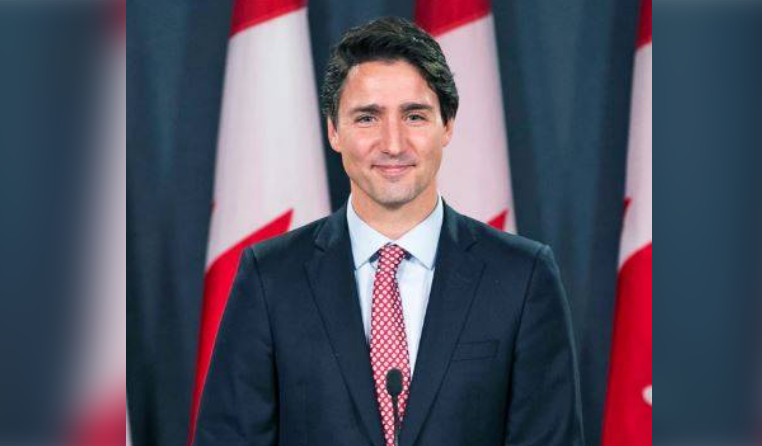Ottawa (Web Desk/Agencies): Prime Minister Justin Trudeau announced on Monday that he would step down as leader of the Liberal Party after nearly nine years at the helm, though he plans to remain in office until a successor is chosen.
This move comes amid growing discontent within the party and mounting pressure from Liberal MPs, following polls that suggest the party is set to face a significant defeat in the next federal election.
Trudeau, 53, who has led the Liberals since November 2015, is one of Canada's longest-serving prime ministers but has seen his approval ratings plummet in recent years.
While Trudeau’s leadership won him two re-election victories, his popularity began to wane around two years ago, fueled by frustrations over escalating living costs, a housing shortage, and an overall sense of economic stagnation. His government's struggles to address these issues have made him increasingly vulnerable as the official opposition Conservatives appear to be gaining ground.
Polling data currently indicates that the Liberals are on track for a crushing defeat at the polls, regardless of who leads them into the next election, which is mandated to occur by late October.
The decision to suspend Parliament until March has further complicated the political landscape, with opposition parties already positioning themselves to challenge the government as soon as they can. Should Parliament remain suspended until late March, the earliest that a no-confidence motion could be tabled would likely fall in May.
Amid the domestic political uncertainty, Trudeau also faces increasing pressure from the United States.
President-elect Donald Trump, who will take office on January 20, has publicly threatened to impose a 25% tariff on Canadian goods, a move that would deal a devastating blow to Canada's economy. This external threat has only intensified the political turmoil at home, leading to significant dissent within Trudeau’s own cabinet.
Deputy Prime Minister Chrystia Freeland resigned in December, citing deep disagreements with the prime minister over how to handle Trump’s aggressive trade stance. In response, Trudeau initiated a major cabinet reshuffle, replacing a third of his ministers in an attempt to stabilize his government.
Throughout his time in office, Trudeau has been an advocate for progressive policies such as legalizing cannabis, introducing a carbon tax, and improving relations with Indigenous communities. His tenure also included a revised trade deal with the US and the legalization of assisted suicide. However, his leadership has increasingly been questioned, both from within his party and by the Canadian public.
Trudeau’s resignation comes after a series of public spats with Trump, who has repeatedly insulted the Canadian leader on social media, including calling him “governor” of Canada and suggesting that Canada should become the 51st state of the US.
These remarks, combined with the pressure of looming trade tariffs, have added to the sense of instability surrounding Trudeau's administration.
Originally a political newcomer with an eclectic range of past jobs—including as a snowboard instructor, bartender, and teacher—Trudeau was first elected to the House of Commons in 2008.
His election as Liberal leader in 2013 heralded a new era for the party, and his first two terms as prime minister were marked by ambitious reforms and a focus on progressive issues. However, the political landscape has shifted dramatically in recent years, and the road ahead for the Liberals will likely depend on who emerges as Trudeau’s successor.
With a general election now less than a year away, the Liberal Party is facing a pivotal moment, and Trudeau's decision to step down signals a potential shift in the party’s direction.
His successor will inherit not only the challenge of rebuilding the party’s reputation but also the responsibility of navigating the complex geopolitical and economic pressures of the next several years.


